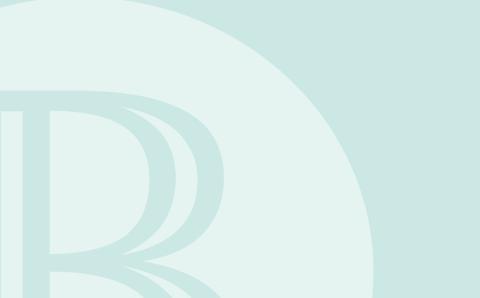Relationships
Q I know a number of people who take antidepressants but never go for counseling. Is depression a purely physical malady, or should medication and counseling go hand in hand?
A It’s difficult to completely separate the physical, emotional, psychological, and spiritual maladies with which people may be afflicted. The various aspects of human experience are completely interactive, with each having an effect (for good or ill) on every other aspect of our being in circular ways rather than in linear cause-and-effect ways. For instance, a depressed person has a difficult time feeling positively connected to other people, which creates feelings of isolation and loneliness. And that inability to experience others as close also encompasses feeling distant from God. The experience of distance from God may lead to feelings of guilt and condemnation, which in turn may exacerbate the depressive illness.
Depression is a horrible and complex malady affecting all of our being. Psychotropic drugs are a blessing for those genetically predisposed to experiencing this affliction. Some people also take antidepressants even though their depression is reactive—that is, they have experienced a profound loss through death or divorce, for example—rather than genetic. Because they feel ill with grief and pain, they seek relief by taking medication.
For reactive depression, drugs are usually not the best answer unless a person is completely debilitated. Taking an antidepressant can sometimes be necessary for a short period of time to help a person function, but it is better to experience and grieve the effects of severe loss and to do so with the help of a counselor rather than try to step over the pain by taking a drug. The grieving process— including feeling depressed —cannot be deferred indefinitely and must eventually be gone through .
Whether people with a genetic predisposition to depression should go for counseling depends on how well they have learned to manage the disease. If people can separate the disease from themselves as something they must incorporate as part of their life, rather than that the disease is their life, they are responding to the depression in a healthy way and probably don’t need counseling help. To further complicate things, however, when people with a genetic predisposition experience profound loss, deep depression may be their immediate physiological response rather than, say, getting migraine headaches or developing an ulcer. When that happens counseling can help provide needed support and help to normalize their experience for them.
Whatever the situation, professional counseling can help if a person feels stuck in a pattern of behavior and/or experience that feels bad most of the time. A counselor can foster understanding of the disease, help lessen feelings of isolation, help develop ways to cope with what cannot be changed, help grieve losses, help with what is needed to feel better. And if the counselor is a fellow Christian, he/she can help to repair one’s relationship with God, who continues to be “our ever-present help” when depression looms large.
—Judy Cook
Judy Cook is a family therapist and clinical director of Salem Christian Counseling Services, Hamilton, Ontario.
Church
Q We receive three to four visits a year from Jehovah’s Witnesses. I feel I’m neglecting an opportunity for witness when I simply identify myself as Christian Reformed. What are the most important Bible verses to show them?
A Forty years ago, while learning Dutch at Calvin College, I translated an article in which the author said that the best defense when Jehovah’s Witnesses come knocking is the “doorknob in your hand.” The person at your door has been extensively trained to counter the typical verses cited by Christians. Such encounters are likely to leave you frustrated and perhaps even doubting your own faith. What’s more, few hearts are changed when people debate proof texts. If you want to witness, develop a relationship with a neighbor or someone in a community organization and speak and live your faith in that person’s presence.
If you do wish to discuss with the person at your door, a seven-session course titled Stuff to Know When Cults Come Knocking will assist you (Faith Alive Christian Resources: 1-800-333-8300, www.FaithAliveResources.org). The book describes Jehovah’s Witnesses,
Mormonism, Christian Science, Wicca, the Occult, and other belief systems. The Four Major Cults by the late Calvin Seminary professor Anthony Hoekema, still available though no longer published, also includes a thorough discussion of Jehovah’s Witnesses.
—George Vander Weit
George Vander Weit is pastor of Fuller Avenue Christian Reformed Church, Grand Rapids, Mich.






